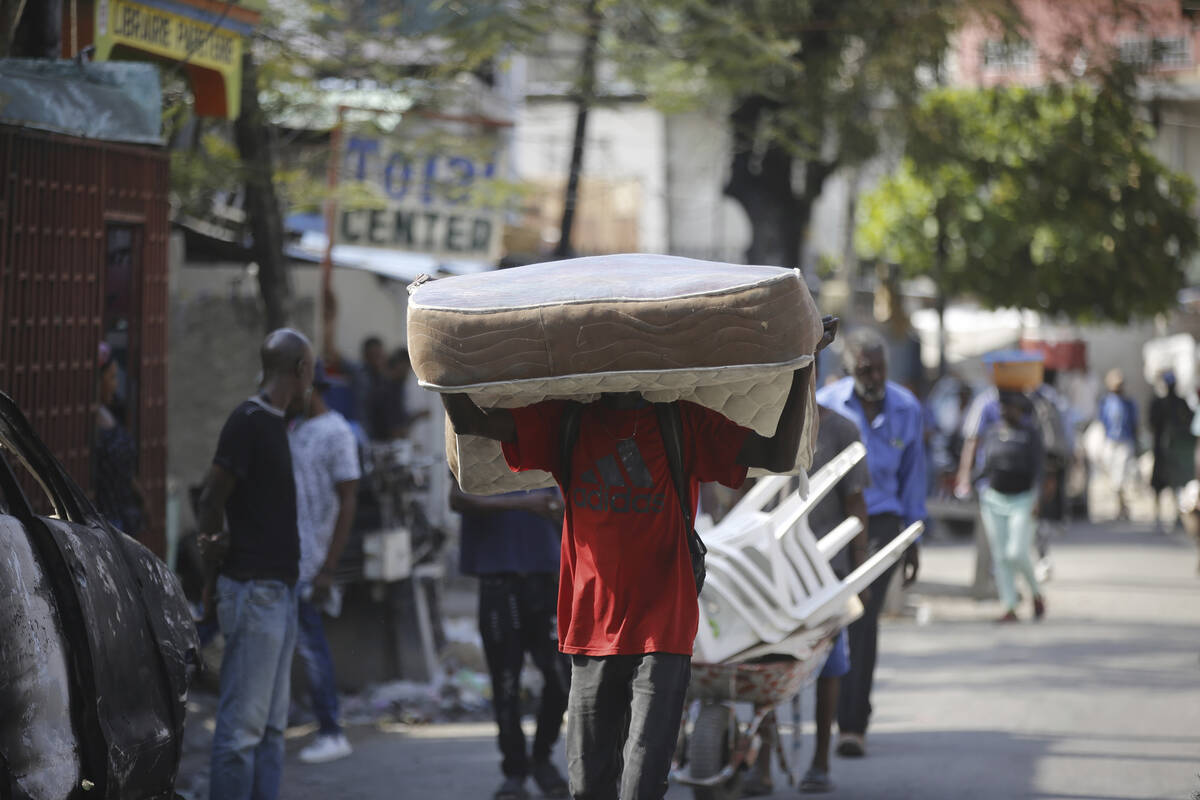CLARENCE PAGE: Haiti’s tragic history just keeps repeating itself
In Haiti, history repeats itself — repeatedly.
And for what remains of Haiti’s troubled government, history seems to keep getting worse.
Haitian Prime Minister Ariel Henry and Kenyan President William Ruto signed an agreement in early March to fast-track a long-delayed deployment of Kenyan police officers to confront spiraling violence in the island nation.
But a day later the Kenyan government put the brakes on the deployment. The feckless Henry, long propped up by Washington, resigned overnight.
Kenya would have to pause the deployment, they announced, and would re-evaluate once a new Haitian government is in place.
If only it were that easy. As tough as it may be to install a new Haitian government, it too often has been harder still to keep one in place.
The news reminded of my last trip to Haiti. With a group from the Committee to Protect Journalists, on whose board I was a member, I met in early 2004 with then-President Jean-Bertrand Aristide, a charismatic priest from the slums who first was elected in 1990 with about two-thirds of the vote.
Jubilant Haitians hoped in Aristide’s first go-round in the 1990s that he would bring calm and prosperity to the poorest country in this hemisphere. Members of the country’s military and other elites were not so sure. Their skepticism proved prescient. He lasted less than a year before a coup.
Haiti lurched between military and elected governments for the rest of the 1990s. Finally, Aristide, still popular with the poor, was re-elected in 2000, this time bringing a tougher attitude and a troubling new reliance on criminal gangs.
But that peace proved fleeting, too. In late February 2004 gangs loyal to Aristide went on a rampage and unleashed chaos in the streets of the capital Port-au-Prince. U.S. Secretary of State Colin Powell’s pledge of support for a proposed international peace plan was roundly rejected.
Aristide finally lost his nerve, avoiding a bloodbath by arranging with American officials to flee the country. Peace was restored with the helpful arrival of about 2,000 U.S. Marines. An interim government was established in a process run by Haitians, James Foley, U.S. ambassador to Haiti in 2003 to 2005, recently recounted in a recent piece published by The Washington Post.
Today almost half of Haiti’s population is struggling to find food, clean living conditions and a sense of hope amid yet another period of chaos. The Biden administration, already struggling with other foreign and domestic crises in Gaza, Ukraine and this country’s southern border, shows little appetite to become deeply immersed in perennially troubled Haiti.
Yet, our attempts to inch away from Haiti breaks with a Caribbean relationship that dates to the late 19th century.
Our worst move, Foley argues, was this country’s decision during the Trump administration to withdraw all U.N. military and police personnel from Haiti between 2017 and 2019. Removing a credible Haitian security force led to the progressive collapse of state institutions and opened the door to the recent anarchy in the streets.
That’s a fair point. But it’s no secret that many Americans have grown weary of trying to solve too many of the world’s problems when there’s little guarantee that we won’t make things worse.
Looking back on my own, admittedly modest, experience on the island, I was most impressed by the many Haitian business leaders and nonprofit heads with whom I met.
Haiti has many talented and resourceful people in those sectors. The Haitian diaspora, whose remittances to family members back home account for about a fifth of the nation’s gross domestic product, provide a resource of knowledge, leadership and productivity that can help the troubled island break its cycles of poverty and hopelessness, if given more of a chance.
Contact Clarence Page at cpage@chicagotribune.com.

















